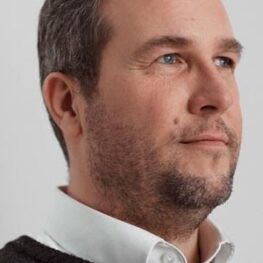Rare Daily Staff
Helsinki Biobank, Helsinki University Hospital, and Blueprint Genetics have formed Rare3K, a research initiative that seeks to bring efficiency to rare disease diagnostics by connecting large amounts of data from biobanks, healthcare, and genetic diagnostics.

Photo: Samuel Myllykangas, executive director of strategy for Blueprint Genetics
The study will develop algorithms that could accelerate the identification of patients who could benefit from genetic testing to confirm their diagnosis.
“Our goal is to answer an unmet need in the field and find a practical solution for identifying individuals in biobanks who could benefit from receiving an accurate genetic diagnosis,” said Samuel Myllykangas, executive director of strategy for Blueprint Genetics. “As technology develops, machine learning-based algorithms could be a game-changer in the way genetic testing is targeted to individuals in hospital databases.”
In the first phase of this research initiative, a cohort of approximately 100,000 sample donors is being used to identify patients with a diagnosis or clinical suspicion of Wilson’s disease, achondroplasia and hypochondroplasia, transthyretin amyloidosis (aTTR) and inherited retinal dystrophies. These rare diseases were chosen based on ongoing development of targeted therapies for their treatment.
Within the Rare3K initiative, the goal is to identify a total of 3,000 individuals for clinical-grade exome sequencing and comprehensive clinical interpretation. Expert clinicians at Helsinki University Hospital have a seminal role in the initiative, paving the road to translate research findings to clinical care.
A central part of the study is to test whether algorithms for analyzing electronic medical records can be developed to identify individuals who would be likely to receive a molecular diagnosis with genetic testing. Finnish hospital biobanks, housing hundreds of thousands of DNA specimens linked with disease history, and comprehensive clinical information from the Helsinki University Hospital data lake, offer a unique opportunity for this development.
“Our focus is to find new ways to identify individuals with clinical features suggesting a rare disease, helping to remove barriers in the identification of patients who would benefit from genetic diagnostics,” said Professor and Scientific Director Olli Carpén of the University of Helsinki and Helsinki Biobank. “This collaboration is pioneering new ways to combine clinical practice and genetics research to create opportunities for providing individualized care to patients. The initiative also demonstrates the value of biobanks as a resource for future medical research with great potential benefits for patients through improved access to diagnosis and novel treatments,”

Stay Connected
Sign up for updates straight to your inbox.
